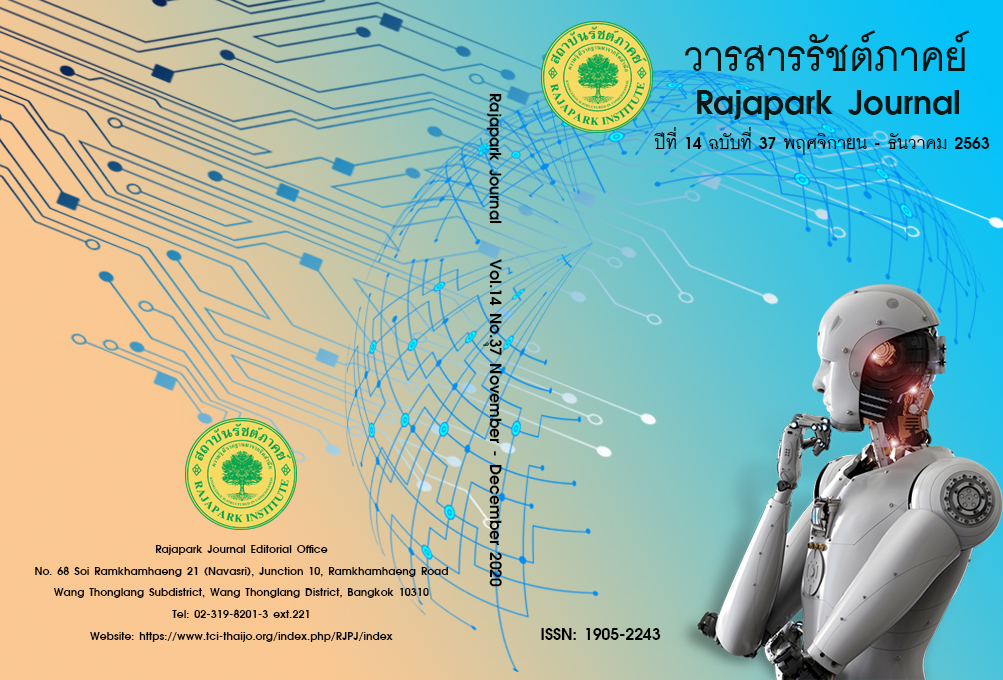Using AIC Technique for Monitoring and Participation of Community to Conservation of Freshwater Jellyfish at Nong Mae Na Subdistrict Khao Kho District, Phetchabun Province
Main Article Content
Abstract
The objective of this research was to develop AIC technique for monitoring and participation of community to the conservation of Freshwater Jellyfish at Nong Mae Na Subdistrict Khao Kho District, Phetchabun Province. The sample of this study was 30 members of the forest conservation community group in Nong Mae Na Sub-district, Khao Kho District, Phetchabun Province. The sample was selected based on a purposive sampling. Data were collected by questionnaires and interview using AIC technique (Appreciation, Influence, and Control) and focus group. In addition, the researcher collected data from in-depth Interview. Data collected were then arranged systematically to determine the content consistency and descriptively presented. The duration of the study was six months. The results of this study indicated that the community group proposed the implementation guidelines for promoting the community surveillance and participation in the conservation of freshwater jellyfish in Nong Mae Na Sub-district, Khao Kho District, Phetchabun Province for four projects, namely 1) the development of Khek River and clean water sources, 2) the conservation of freshwater jellyfish, 3) the development of hiking trails for community forest development, and 4) the promotion of local people to forestation. AIC technique is a model of a participatory action research that aims to develop and solve social and community problems with a starting point from the community support for local people or representative to create new knowledge for themselves.
Article Details
Views and opinions appearing in the Journal it is the responsibility of the author of the article, and does not constitute the view and responsibility of the editorial team.
References
Chooprasoot, S. (2016). People's Participation in Forest Resource Conservation: A Case Study of Khao Phra Theaw Non Hunting Area, Phuket Province. The Degree of Master of Science in Environmental Management. Prince of Songkla University.
Community Organization Development Institute (Public Organization). (2008). Model beehive, Community-Based Natural Resource and Environment Management Model. Bangkok: Roumtaweepol Print.
Esichaikul, R. (2014). Niche tourism management. Nonthaburi: Sukhothai Thammathirat Open University.
Nuichim, C. (2011). People’s Participation in the Management of Khao Sanam Prieng Wildlife Sanctuary, Kamphaengphet Province. Nonthaburi: Sukhothai Thammathirat Open University.
Khan, S., & Thavornkit, S. (2017). The Environmental Conversation Model for Communities: A case study of Local Science Projects Under Rajabhat University Network. Journal of Information, 16(2), 169-181.
Komstra, S. (2016). The Participation of Citizens in Community Forest Conservation: A Case Study of Tambon Chongsadao Amphoemuang Kanchanaburi, Kanchanaburi Province. Journal of Humanities and Social Sciences, Rajapruk University, 1(3), 59-68.
Kongdechadisak, P. (2014). The People’s Participation in Environmental Conservation at Kohchang National Park, Kohchang District, Trad Province. Master of Public Administration, Department of Public and Private Management. Burapha University.
Kovathanakul, D. (2013). Sustainable Tourism Development. Khon Kaen: Faculty of Management, Khon Kaen University.
Poungngamchuen, J. et al. (2013). Participatory development of the people in community forest management model: A case study of Baan Tha Pha Pao, Tha Pra Duk Sub-district, Maetha district, Lampun province. KMUTT Research and Development Journal, 36(2), 215-234.
Sakunapat, P., Jirojphan, W., & Cheikiwong, U. (2011). Ecotourism (2nd ed.). Bangkok: Saengdao.
Sittinew, K. (2005). Jellyfish Mystery in River. Sarakadee Magazine, 12(240, February).
Wongup, M. (2015). Development Guideline of People in Local Government Organization Area, Wangjao District, Tak Province. The Master of Public Administration Degree Program in Local Government, Kamphaeng Phet Rajabhat University.


